The Right-Wing Populism That Drove Brexit Can Only Be Fought With a Genuinely Radical Alternative
The Reagan-Thatcher consensus will be replaced either by new visions of social progress or by new forms of racism and authoritarianism.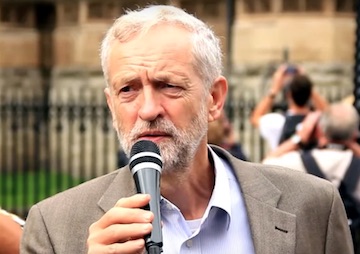 Labour Party leader Jeremy Corbyn speaks in London in 2013. (YouTube / RevolutionBahrainMC)
1
2
Labour Party leader Jeremy Corbyn speaks in London in 2013. (YouTube / RevolutionBahrainMC)
1
2
The lie of anti-immigrant campaigns is that these deeper structural processes can be overturned through more heavily policed borders. But the only outcome of tightening border controls is the immiseration of the immigrant worker, not a reduction in their number. These circumstances in turn foster the conspiratorial thinking that “cosmopolitan” politicians have abandoned the national interest and given up on controlling immigration; hence the demand to “take back control” – the slogan that won the Brexit vote.
It is also true that the impacts of immigration have not been distributed evenly in Britain. The rich have accrued the economic gains while the poor have faced the social fallout. The burdens on public services of an increasing population have been over-stated but there are some neighborhoods where strains are real. So too in some sectors of the labor market has wage inflation been kept down through the exploitation of new workforces in eastern Europe, whether through immigration or capital flight. The problem is not immigration per se but the way it becomes a focal point for deeper processes of dispossession.
At the same time, institutions that should have enabled such tensions to be worked through and negotiated instead pitted against each other the poor and the still poorer. The BBC’s mandate for public service broadcasting ought to have made it a bulwark against the calumny of tabloid racism. But having patronized or ignored working-class political life since the 1980s, it discovered in the new century a shallow fascination with the “white working class,” whose self-appointed representatives got air time so long as they fitted the stereotype of the uneducated bigot.
A similar dynamic plagued the Labour Party. Unable to offer much of a political programme to the Party’s working-class base, its leaders instead substituted crude nationalist slogans. Labour Prime Minister Gordon Brown spoke of “British jobs for British workers,” borrowing a line from the far Right that he knew was meaningless. His successor as party leader Ed Miliband raised money for the 2015 general election campaign by selling mugs with the slogan, “Controls on immigration.”
Britain’s liberal elites assumed that the best way to respond to the anti-immigrant mobilization was to absorb a little of its energy. This tactic, dressed up as responding to “legitimate concerns” on immigration, seemed eminently pragmatic but was strategically counter-productive. It tried to make a distinction between a rational anti-immigrant sentiment and an irrational racism, the former to be absorbed into the mainstream, the latter to be marginalized. In fact, no such distinction existed and acting as if it did had the effect of further legitimizing racism in the political mainstream. To believe the anti-immigrant mobilization, aided by the power of the right-wing press and politicians, could be mollified with sprinklings of liberal “reassurance” was wishful thinking. Instead, its appetite grew stronger the more it was fed.
By 2015, when David Cameron pledged to hold a referendum on EU membership, the stage was set for a populist upsurge. That, combined with the prime minister’s 2010 pledge to reduce net immigration to the “tens of thousands,” sealed his fate. He utterly failed to lower immigration to anywhere near his target. Indeed, there was no way he could have done so without stemming the demand for docile migrant workers at the bottom of the economy, which was impossible to achieve within the free-market consensus. But the Leave the EU campaign argued, with a superficial plausibility, that free movement across the EU, a condition of membership, was the real reason Cameron had failed to reduce immigration. Inevitably, the dominant theme in the referendum contest was whether withdrawal from the EU would be necessary to reduce the number of immigrants entering Britain.
In the last few weeks before the vote, the Leave campaign stepped up its focus on immigration, especially from the Middle East, garnering itself a bump in the polls. Defence minister Penny Mordaunt went on the main Sunday morning political TV show to warn that Turkey was set to join the EU and would present a “security risk” because of its “problems with gangs and terror cells” and its “land border with Syria, Iraq and Iran.” The intended implication was clear: only by leaving the EU could Britain avoid millions of refugees and migrants arriving from the Middle East.
The official Leave campaign backed this message with an online video entitled “Paving The Road From Ankara,” which showed invading arrows tracing a path across Europe from Turkey to Britain. Meanwhile Justice Secretary Michael Gove claimed that staying in the EU would overwhelm public services with migrants from Turkey. Gove, a key figure in the Leave campaign, is a committed neoconservative and close ally of Rupert Murdoch, and is now in a strong position to replace Cameron as prime minister.
A week before the vote, it fell to UKIP leader Nigel Farage to present the Leave message without its veneer of civility, with the launch of an Islamophobic poster showing a crowd of desperate Middle Eastern refugees emblazoned with the slogan, “Breaking point.” The pro-EU camp countered with vague clichés about immigration bringing economic prosperity – a claim that would have sounded hollow to anyone struggling under austerity. But the anti-EU message proved as attractive in leafy, affluent small towns such as Aylesbury and Chichester as it did in former industrial northern and Welsh towns that had been wasted by Thatcherism, making possible a cross-class nativist victory.
Of course, the motives of those who voted for Brexit were complex and varied. Racism, Islamophobia, or anti-immigrant sentiment were not the only reasons to vote to leave the EU. But the Brexit campaign anchored itself on the claim that English life is being destroyed by immigration. It was a fantasy but it had its kernel of truth. The post-war social fabric was indeed being destroyed.
In fact, the culprits were not Muslim or eastern European immigrants and their alleged enablers in Brussels. The real responsibility lay with Britain’s ruling political and economic class, who had imposed thirty years of Thatcherism and thereby tied English society to the whims of global capitalism. Alas, instead of rebelling against the globalization of capital, Britain rebelled against the globalization of labor, finding in the immigrant a suitable object of displaced resentment. Following the Brexit vote, that resentment released itself through a celebratory racism – with abuse and violence against migrants and anyone not white at levels not seen since the 1990s.
The far-right has realized its fantasy of a British “Independence Day” and has proven powerful enough to shake the world. The country has been plunged into its deepest political crisis since World War Two. The collapsing United Kingdom now stands as an example of what can befall any society trapped in a free-market economy flailing in its death throes. In the US presidential election this year, Donald Trump will rely on exactly the same energies that powered the Brexit victory.
The lesson for the US is that right-wing populism cannot be fought by trying to shore up a discredited political center ground or by conceding to nativism and Islamophobia. Nor will a purely economic appeal work in societies where race is a deep part of the social structure.
Instead, we must reject the free-market Reagan-Thatcher consensus as forcefully as the far-right appears to do, while demanding in its place a genuinely radical social and political alternative. As the free-market model continues to unravel, it will be replaced either by new visions of social progress or by new forms of racism and authoritarianism. The words uttered a century ago by Rosa Luxemburg resonate as strongly as ever: “Socialism or barbarism.”
Your support matters…
SUPPORT TRUTHDIG
Independent journalism is under threat and overshadowed by heavily funded mainstream media.
You can help level the playing field. Become a member.
Your tax-deductible contribution keeps us digging beneath the headlines to give you thought-provoking, investigative reporting and analysis that unearths what's really happening- without compromise.
Give today to support our courageous, independent journalists.

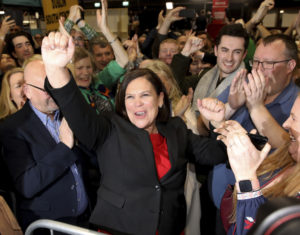
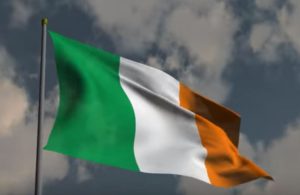
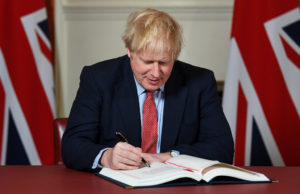
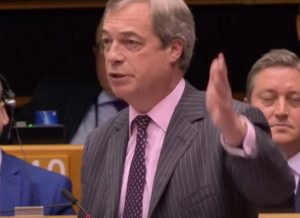
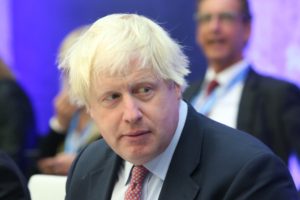
You need to be a supporter to comment.
There are currently no responses to this article.
Be the first to respond.